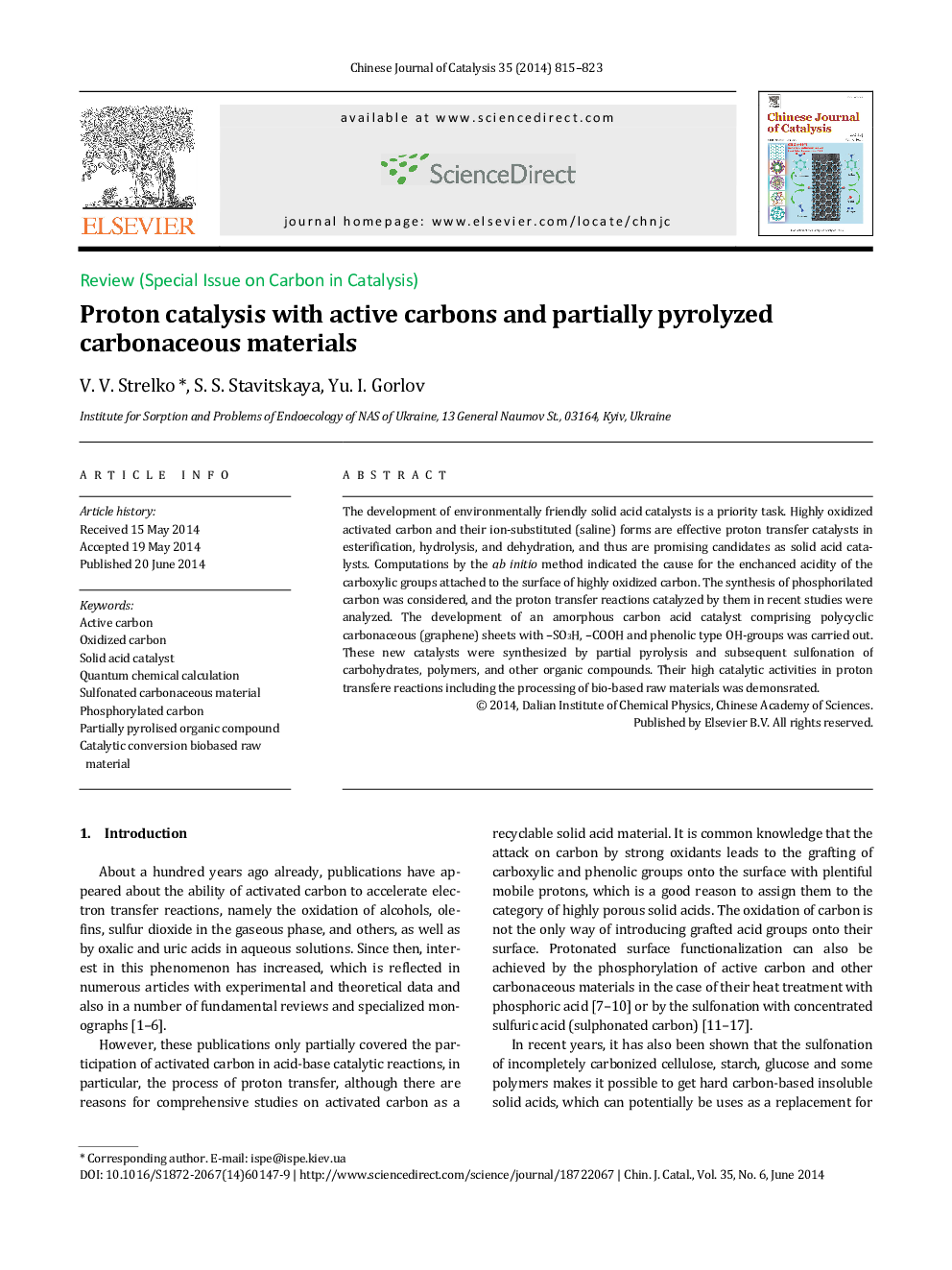| Article ID | Journal | Published Year | Pages | File Type |
|---|---|---|---|---|
| 59709 | Chinese Journal of Catalysis | 2014 | 9 Pages |
The development of environmentally friendly solid acid catalysts is a priority task. Highly oxidized activated carbon and their ion-substituted (saline) forms are effective proton transfer catalysts in esterification, hydrolysis, and dehydration, and thus are promising candidates as solid acid catalysts. Computations by the ab initio method indicated the cause for the enchanced acidity of the carboxylic groups attached to the surface of highly oxidized carbon. The synthesis of phosphorilated carbon was considered, and the proton transfer reactions catalyzed by them in recent studies were analyzed. The development of an amorphous carbon acid catalyst comprising polycyclic carbonaceous (graphene) sheets with –SO3H, –COOH and phenolic type OH-groups was carried out. These new catalysts were synthesized by partial pyrolysis and subsequent sulfonation of carbohydrates, polymers, and other organic compounds. Their high catalytic activities in proton transfere reactions including the processing of bio-based raw materials was demonsrated.
Graphical AbstractProtonogenic functionality of deeply oxidized and phosphated active carbons, as a pyrolized sulphated organic materials determines their catalytic activity in acid base reactions. These materials have well prospective in the field biorefining namely in biomass processing.Figure optionsDownload full-size imageDownload as PowerPoint slide
